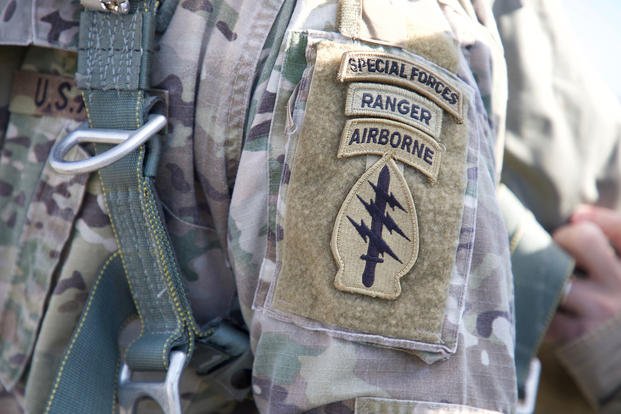At least 13 soldiers assigned to U.S. Army Special Operations Command at Fort Bragg, North Carolina, are under investigation for drug trafficking, the service announced Monday.
"Illegal activity by any member of the Special Operations Forces community undermines everything we stand for as an organization," a statement from Special Operations Command said. "As a professional and disciplined force, we are committed to addressing harmful behaviors that affect our people -- our most important asset -- and upholding the high standards of conduct displayed by the vast majority of SOF members every day."
There have been no charges or arrests yet, according to a service spokesperson.
Read Next: Army Expanding Course for Overweight and Low-Scoring Recruits in Bid to Fill the Ranks
Fort Bragg is in so-called Corridor H, a designation from the Department of Justice of eight different parts of the country in which drugs, particularly fentanyl, are heavily trafficked. That corridor encompasses I-95, a highway that stretches from Miami to Houlton, Maine.
Since 2015, there have been at least 16 drug overdose deaths at Fort Bragg, according to internal Army documents reviewed by Military.com. Of that, at least two were junior enlisted soldiers training to become Green Berets who overdosed on cocaine laced with fentanyl.
Deadly drug overdoses have spiked across the country since 2019, largely due to the introduction of fentanyl, a cheap synthetic opioid that is often mixed with other drugs. Fentanyl is similar to morphine, but up to 100 times more powerful. In 2020, there were 91,799 drug overdose deaths in the U.S., according to the Centers for Disease Control and Prevention.
The size of special operations has also grown from roughly 46,000 personnel in 2001 to about 73,000 in 2021, according to a report from the Government Accountability Office. That report, ordered by Congress, found that the rapid growth is at least partly responsible for some oversight issues.
Oversight of special operations has slowly increased on Capitol Hill as the Pentagon has leaned heavily on its elite units in the counter-terrorism campaigns following 9/11. Units that are tasked with operating in the dark face few checks and balances, compared to conventional forces, in environments that are not shrouded in secrecy, such as day-to-day operations on American soil.
An internal review of Special Operations Command conducted in 2019 found severe issues with ethics in the community, finding that the culture of elite units' extreme focus on mission accomplishment allows misconduct and unethical behavior to often go unchecked.
-- Steve Beynon can be reached at Steve.Beynon@military.com. Follow him on Twitter @StevenBeynon.
Related: Get Ready for Fort Liberty: The Pentagon Begins Changing Confederate Base Names













